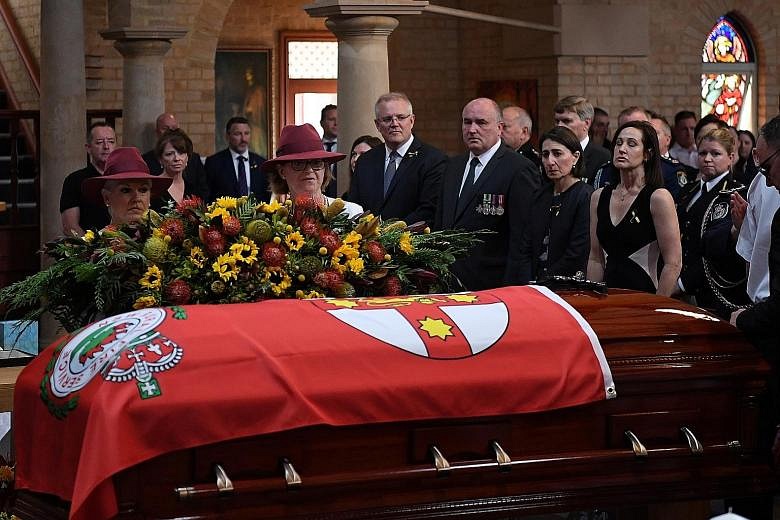Two days after the small town of Cobargo, south of Sydney, was devastated by a bush fire last week, Australian Prime Minister Scott Morrison travelled to meet the affected residents - a standard practice for political leaders in times of disaster.
But when Mr Morrison, accompanied by the media, wanted to shake the hand of Ms Zoey McDermott, who was pregnant and had just lost her house, he was sternly rejected in what may prove to be a defining political moment of the catastrophe that has engulfed Australia.
Adding to the pathos - and cringe-worthiness - of the scene, Mr Morrison then grabbed her limp hand and forced her to complete the shake. "He just wanted photos," Ms McDermott later told The Sydney Morning Herald. "I would've happily shaken his hand if he'd turned around and said, 'I know what you've gone through, I'll help.' "
This footage seemed to capture Mr Morrison's troubled handling of a national crisis that has killed at least 25 people, destroyed almost 2,000 homes, forced some in stranded areas to go days without power or basic supplies, and left many wondering about the future of the country.
More than 10.3 million ha have been razed - about the size of South Korea - and almost 200 fires are still burning. The Insurance Council of Australia this week estimated the damages claims from the fires since September would be more than A$700 million (S$650 million), though this is expected to increase.
Yet, faced with this mounting tragedy, Mr Morrison has been heavily criticised as unresponsive, stubborn, insensitive, and more concerned about perceptions than policy. His troubles began with his decision to go on holiday to Hawaii with his family last month even as enormous fires were already burning.
Despite eventually cutting his holiday short and returning to Australia, he appeared to be reluctant to adopt a national response, signalling that the states bore responsibility for handling the crisis.
Things came to a head on the streets of Cobargo last week.
"You won't be getting any votes down here, buddy," one resident screamed at him. Even a Liberal colleague, New South Wales state minister Andrew Constance, observed: "The locals gave him a welcome that was to be expected."
Mr Morrison has now scrambled to adopt a more proactive stance, yet his troubles have continued.
Last weekend, he announced the historic decision to call up 3,000 army reservists to assist with the crisis. But he failed to inform the New South Wales rural fire chief, who was furious at having learnt of the decision from media reports.
An advertisement to promote the deployment was widely criticised as an attempt to make political gains from the disaster, despite Mr Morrison's insistence that it was merely to inform the community about the government's response.
Finally, underlying these blunders and missteps, the Prime Minister has long been resistant to take tough action on climate change - a stance that seems increasingly reckless as the continent endures record temperatures and fires of extraordinary size and ferocity.
Last month, at the United Nations climate summit in Madrid, the Morrison government earned international criticism over its reluctance to adopt stronger carbon emission reduction measures.
This defiance now seems brazen, as the current crisis appears to be tragically validating warnings issued by experts for years about the risk that global warming will add to the severity and frequency of the nation's bush fires.
Yet Mr Morrison may find it hard to change his climate stance, as he could risk losing the support of his party's right-wing climate-sceptic MPs.
As political commentator Sean Kelly pointed out this week in The Sydney Morning Herald, the Prime Minister is a shrewd political operator who, faced with an extreme crisis, is finding that the "usual formulas are failing him".
"The world is showing itself, and the game of politics is not working as it usually does."
SEE OPINION: Paradise lost: What Australia's carbon exports have sown

